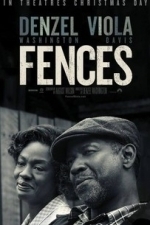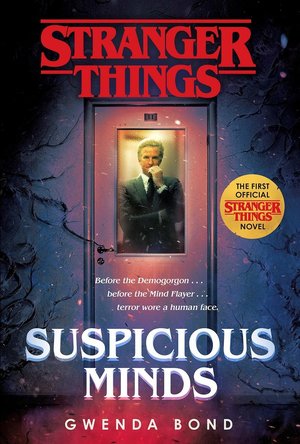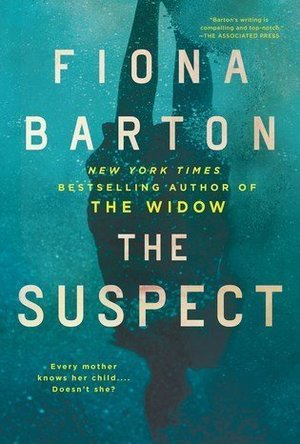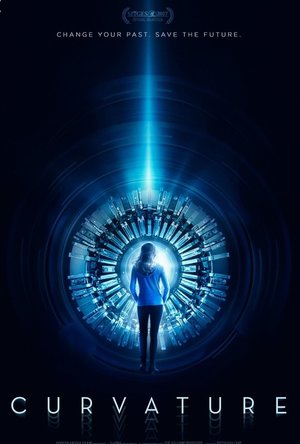Search
Search results
Bob Mann (459 KP) rated Fences (2016) in Movies
Sep 29, 2021
The Last Post.
In “Fences” Denzel Washington plays Troy – a bitter, self-centred and selfish man in his mid-fifties who loves the sound of his own voice. They say “empty vessels make the most noise” and here is a case in point. Set in the early fifties, race plays a strong card in every aspect of life, and Troy feels betrayed by a failed baseball career that – in his eyes at least – looked over his skills to the colour of his skin. But Troy is also a stubborn cuss, and refuses to acknowledge that even in the 50’s “The times they are a changing’”. His cussedness puts him on a collision course with his teenage son Cory (Jovan Adepo), given his aspirations for a college football scholarship, and his mother (Viola Davis, “The Help”) tries to keep the peace between the two of them.
This is a film primarily about resistance to change. All those changes in the outside world are on the ‘other side of the fence’ that Troy habitually tries to finish but never seems to put his mind to. Fences keep things out; but they also keep things in, and Troy is in a cocoon of his own making. He justifies his actions as a ‘family provider’ with lengthy speeches but ultimately they deliver hollow words and assertions that don’t stand up to scrutiny.
This is a pressure cooker of family life that is primed to blow, and a revelation (which I didn’t see coming) sets that fuse alight.
This is a film worth watching for the acting performances of Denzel Washington and (particularly) Viola Davis, winner of the Best Supporting Actress BAFTA and a strong contender for the Oscar. Both give assured performances, although Troy is such an instantly dis-likable and pitiable character that I could feel my emotions influencing my judgement about his performance.
But this is also a strong ensemble cast, with Mykelti Williamson (famously appearing as Bubba of the ‘Bubba Gump Shrimp Factory’ fame) being effective as Troy’s disabled brother and English-born Jovan Adepo being particularly impressive in an extremely assured feature debut.
However, the Broadway roots of the piece are highly visible with 98% of the film set either in the back yard, in the house, or on the front steps (the set could clearly rotate!). For such a claustrophobic topic, this is perhaps apt. But as a feature film I longed for the action to go elsewhere. The film version of the story – with a few tweaks to the screenplay – has lots of opportunities for this, but these are never taken. This makes the whole piece feel ‘worthy but dull’. In particular, anyone looking for a useful tutorial on fence building needs to look elsewhere!
As for the recent “Moonlight” there is also excessive use of the “N” word and other outdated racial references that have the potential to offend.
Good luck to Viola Davis and Denzel Washington (who also directed this) for their Best Supporting Actress and Best Actor Oscars nominations. But “Best Film” Oscar? No, I don’t think so. In truth this is a film that I will struggle to remember or get excited about in a month’s time and it will not be on my re-watch list.
This is a film primarily about resistance to change. All those changes in the outside world are on the ‘other side of the fence’ that Troy habitually tries to finish but never seems to put his mind to. Fences keep things out; but they also keep things in, and Troy is in a cocoon of his own making. He justifies his actions as a ‘family provider’ with lengthy speeches but ultimately they deliver hollow words and assertions that don’t stand up to scrutiny.
This is a pressure cooker of family life that is primed to blow, and a revelation (which I didn’t see coming) sets that fuse alight.
This is a film worth watching for the acting performances of Denzel Washington and (particularly) Viola Davis, winner of the Best Supporting Actress BAFTA and a strong contender for the Oscar. Both give assured performances, although Troy is such an instantly dis-likable and pitiable character that I could feel my emotions influencing my judgement about his performance.
But this is also a strong ensemble cast, with Mykelti Williamson (famously appearing as Bubba of the ‘Bubba Gump Shrimp Factory’ fame) being effective as Troy’s disabled brother and English-born Jovan Adepo being particularly impressive in an extremely assured feature debut.
However, the Broadway roots of the piece are highly visible with 98% of the film set either in the back yard, in the house, or on the front steps (the set could clearly rotate!). For such a claustrophobic topic, this is perhaps apt. But as a feature film I longed for the action to go elsewhere. The film version of the story – with a few tweaks to the screenplay – has lots of opportunities for this, but these are never taken. This makes the whole piece feel ‘worthy but dull’. In particular, anyone looking for a useful tutorial on fence building needs to look elsewhere!
As for the recent “Moonlight” there is also excessive use of the “N” word and other outdated racial references that have the potential to offend.
Good luck to Viola Davis and Denzel Washington (who also directed this) for their Best Supporting Actress and Best Actor Oscars nominations. But “Best Film” Oscar? No, I don’t think so. In truth this is a film that I will struggle to remember or get excited about in a month’s time and it will not be on my re-watch list.
Laura Doe (1350 KP) rated Life, Death and Biscuits in Books
Apr 4, 2022
This book was an interesting look at the life of a critical care nurse during the Covid-19 pandemic. It was both heartbreaking and heartwarming in places and it was interesting to learn what exactly a critical care nurse is tasked with daily.
However, this has not been my favourite medical memoir, having read Adam Kay’s This Is Going To Hurt just before starting this book. While I liked that the emails that Anthea originally sent out were included, they became very repetitive and I started to become a little bit bored of reading about the same things. I understood that when they were sent out, they were a week or so apart from each other so it may have been necessary for the repetition, but I just don’t think that it worked well within a book.
I also started to get annoyed at the way that Anthea referred to young doctors and belittled them (they were so young they still had acne or a doctor fainted within 2 hours of starting work on the Covid ICU) and how she repeatedly told the reader that the nurses that were sent to help weren’t trained enough and weren’t giving the best care to their patients. It was like she forgot that these nurses had been pulled out of their specialties and thrown into a place where they had to learn new skills, I would bet that Anthea couldn’t work in the areas that these nurses came from to the same standard as them either.
I also got frustrated and felt that she was trying to make us feel sorry for the nurses who were fed three times a day during the start of the pandemic and were forever being gifted snacks, gift bags and hampers and how later on during the second wave she said that they did their job without the discounts, without the free coffee and without a pay rise. While these nurses really did go through hell and I wouldn’t wish it on anybody, the hospital nurses received a lot more than other nurses (especially community nurses), support workers and care home staff who worked tirelessly through the pandemic caring for those who weren’t in the hospitals. The only difference being that they didn’t have the luxury that Anthea and her team had of the food and endless “PPE hugs” whilst still working in the strangest times. Another sentence that stuck out to me was “only nurses talk of food while the aroma of faeces fills the air”, which is not true at all. Anyone who works within the health and social care sector and deals with the personal care of people have the same sense of humour and the same outlooks as many nurses but often get forgotten about.
While this book was interesting to begin, I found from about 40% through I was starting to get very annoyed by the repetition and the self-congratulatory writing that I wasn’t sure if I could finish the book. I think the book could have been much shorter than it was, but I also think that anyone who worked from home or was furloughed during the pandemic should read this to understand how hard it was to work on the front lines while most were enjoying the glorious weather and all of the lockdown activities that went on.
However, this has not been my favourite medical memoir, having read Adam Kay’s This Is Going To Hurt just before starting this book. While I liked that the emails that Anthea originally sent out were included, they became very repetitive and I started to become a little bit bored of reading about the same things. I understood that when they were sent out, they were a week or so apart from each other so it may have been necessary for the repetition, but I just don’t think that it worked well within a book.
I also started to get annoyed at the way that Anthea referred to young doctors and belittled them (they were so young they still had acne or a doctor fainted within 2 hours of starting work on the Covid ICU) and how she repeatedly told the reader that the nurses that were sent to help weren’t trained enough and weren’t giving the best care to their patients. It was like she forgot that these nurses had been pulled out of their specialties and thrown into a place where they had to learn new skills, I would bet that Anthea couldn’t work in the areas that these nurses came from to the same standard as them either.
I also got frustrated and felt that she was trying to make us feel sorry for the nurses who were fed three times a day during the start of the pandemic and were forever being gifted snacks, gift bags and hampers and how later on during the second wave she said that they did their job without the discounts, without the free coffee and without a pay rise. While these nurses really did go through hell and I wouldn’t wish it on anybody, the hospital nurses received a lot more than other nurses (especially community nurses), support workers and care home staff who worked tirelessly through the pandemic caring for those who weren’t in the hospitals. The only difference being that they didn’t have the luxury that Anthea and her team had of the food and endless “PPE hugs” whilst still working in the strangest times. Another sentence that stuck out to me was “only nurses talk of food while the aroma of faeces fills the air”, which is not true at all. Anyone who works within the health and social care sector and deals with the personal care of people have the same sense of humour and the same outlooks as many nurses but often get forgotten about.
While this book was interesting to begin, I found from about 40% through I was starting to get very annoyed by the repetition and the self-congratulatory writing that I wasn’t sure if I could finish the book. I think the book could have been much shorter than it was, but I also think that anyone who worked from home or was furloughed during the pandemic should read this to understand how hard it was to work on the front lines while most were enjoying the glorious weather and all of the lockdown activities that went on.

The Refugees...A Story About Change
Book
If there is something i love the most in this life …. I believe it is … socializing with the...
Bong Mines Entertainment (15 KP) rated KOD by J. Cole in Music
Jun 7, 2019
J. Cole is a popular hip-hop lyricist out of Fayetteville, North Carolina. Not too long ago, he released his long-anticipated, self-produced, fifth studio album, entitled, “KOD”.
J. Cole – “KOD Trailer”
Cole revealed via Twitter that “KOD” stands for Kids on Drugs, King Overdosed, and Kill Our Demons. The rest of the album he leaves to our interpretation. Well, let’s begin.
INTRO
The album begins with caution. Jazz bellows underneath a female voice reciting uplifting words. Her message suggests listeners should make the right decisions (choose wisely) because the past (sand in an hourglass) can provide shelter for their demons.
Also, a way to a painless existence is provided. Those in pain must choose wisely, or make healthier decisions, to avoid being tormented by their past.
KOD
The title track showcases Cole’s Kids on Drugs braggadocios side. In verse one, he utilizes his carnal mind to reply to media/fans asking him a bunch of ‘how’ questions. But instead of being humble, Cole replies to his critics in an arrogant way.
The second verse disconnects from the first and goes into a random storytelling mode with intersecting ideas that jump from one subject to another.
The outro is noteworthy. It forms a bridge between Intro and KOD songs. Also, it ends on a thought-provoking note.
If love is indeed the strongest drug like Cole stated, then why isn’t it being chased after like the drugs listed above? Why aren’t more people getting high off love? The question then becomes…is love even a drug?
That depends on who you ask. But what we all will agree on, love is an invisible element that contributes to people being addicted to drugs? It’s a fact, a strong love for something breeds addiction, dependency, et cetera.
PHOTOGRAPH
Cole uses a 2018 rhyme pattern to address a woman he follows privately on social media. He’s addicted or loves to stalk the woman online, and it’s starting to mess with his health.
Cole always excels when he tells stories about him and a woman. Women are his go-to subject to rap about and he does a pretty good job on this song.
THE CUT OFF (FEAT. KILL EDWARD)
Cole isn’t too fond of doing features on his albums. But this time, he enlists his alter ego, kiLL edward, to help him say that Heaven is a mental mind state.
edward raps that he’s stuck in his fallen ways and that’s why he keeps falling down. That’s why he drinks alcohol and uses drugs to help him cope. But keep in mind that edward is actually Cole.
Cole raps about disloyal friends that owe him an apology and what he’s gonna do to them when they meet. But all the while, edward is in Cole’s mind telling him that drinking alcohol and using drugs will help numb his pain.
ATM
ATM is an energetically poppin’ single with replay value. It begins with the album’s theme—choose wisely.
Cole praises money like it’s biblical and even states that it solved every problem he had. But after counting up all the money, he concludes that you can’t take it with you when you die.
The Scott Lazer & Cole-directed video shows the King of Drugs chauffeuring a bunch of children riding on a drug float. The storyline is dope, reminiscent of a classic video from hip-hop’s golden era.
Also, Cole literally gives his arm and leg to purchase a vehicle. That transaction signifies what people are doing nowadays to accumulate material wealth. But keep in mind, chasing money will lead to your death or downfall. Message received.
MOTIV8
Motiv8 is a good track that features a sample from Junior M.A.F.I.A.’s “Get Money” single.
Cole encourages listeners to get high and get money, even though he just said that chasing money is detrimental to their health.
Verse 2 features one of Cole’s best lyrics and flow.
KEVIN’S HEART
Cole’s continues his lyrical crusade and touches on his favorite subject.
He raps about being in a committed relationship but admits to being an addict that’s addicted to cheating. He tries to fight the temptation and remain faithful but acknowledges that he’s fake for thinking that way.
BRACKETS
The song begins with a Richard Pryor comedy skit.
Cole speaks about being a millionaire and then he receives a phone call from Uncle Sam.
Verse 2 highlights Cole’s disgust with paying higher taxes now that he’s a millionaire.
ONCE AN ADDICT – INTERLUDE
Cole shines brightly on this song, which is reminiscent of Nas’ “Project Windows” single.
He addresses his mother’s battle with alcoholism. The reason why she drank—because Cole’s step-father had a baby with another woman. So, to cope with the pain, Cole’s mother started abusing alcohol.
With no one to turn to, she used to call to talk to Cole. But he didn’t like talking to her while she was drunk.
At the end of the song, Cole regrets being that way to his mother when she needed him the most.
FRIENDS (FEAT. KILL EDWARDS)
Cole finds solace in his alter ego and cops another bag of weed to smoke. Somehow, he needs it to cope and gets aggravated when he doesn’t smoke.
He takes this time to address his friends who aren’t motivated to succeed. He tells them several things they can blame their lack of motivation on. And ends it by saying that the blame game is also an addiction that people use to not get better.
Also, he raps about depression and drug addiction.
WINDOW PAIN – OUTRO
The song begins with a girl telling Cole about the time her cousin got shot. Cole is sad, listening to the girl with tears in his eyes.
Then Cole praises the Most High. He speaks about things he wanna do like killing the man that made his mother cry and seeing his granny on the other side.
The girl ends the song with a powerful message.
1985 – INTRO TO “THE FALL OFF”
Cole ends his KOD album in battle rap mode. He addresses Lil Pump for dissing him on Pump’s “F*ck J Cole” song.
Cole’s flow is melodic and his lyrics cut deep. He foretells Pump’s future and predicts the rapper will be on Love & Hip-Hop in five years. Also, Cole wished him good luck in his career.
CONCLUSION
J. Cole gets a big thumbs up for producing a solid album with no features. Also, his evergreen message of choosing wisely has to be applauded, especially nowadays when living recklessly is being rewarded.
Listeners have different options to cope with their pain. Using drugs and drinking alcohol are just two ways of doing so. But if you choose wisely, and pick a healthier way to ease your pain, your life will change for the better.
https://www.bongminesentertainment.com/j-cole-kod/
J. Cole – “KOD Trailer”
Cole revealed via Twitter that “KOD” stands for Kids on Drugs, King Overdosed, and Kill Our Demons. The rest of the album he leaves to our interpretation. Well, let’s begin.
INTRO
The album begins with caution. Jazz bellows underneath a female voice reciting uplifting words. Her message suggests listeners should make the right decisions (choose wisely) because the past (sand in an hourglass) can provide shelter for their demons.
Also, a way to a painless existence is provided. Those in pain must choose wisely, or make healthier decisions, to avoid being tormented by their past.
KOD
The title track showcases Cole’s Kids on Drugs braggadocios side. In verse one, he utilizes his carnal mind to reply to media/fans asking him a bunch of ‘how’ questions. But instead of being humble, Cole replies to his critics in an arrogant way.
The second verse disconnects from the first and goes into a random storytelling mode with intersecting ideas that jump from one subject to another.
The outro is noteworthy. It forms a bridge between Intro and KOD songs. Also, it ends on a thought-provoking note.
If love is indeed the strongest drug like Cole stated, then why isn’t it being chased after like the drugs listed above? Why aren’t more people getting high off love? The question then becomes…is love even a drug?
That depends on who you ask. But what we all will agree on, love is an invisible element that contributes to people being addicted to drugs? It’s a fact, a strong love for something breeds addiction, dependency, et cetera.
PHOTOGRAPH
Cole uses a 2018 rhyme pattern to address a woman he follows privately on social media. He’s addicted or loves to stalk the woman online, and it’s starting to mess with his health.
Cole always excels when he tells stories about him and a woman. Women are his go-to subject to rap about and he does a pretty good job on this song.
THE CUT OFF (FEAT. KILL EDWARD)
Cole isn’t too fond of doing features on his albums. But this time, he enlists his alter ego, kiLL edward, to help him say that Heaven is a mental mind state.
edward raps that he’s stuck in his fallen ways and that’s why he keeps falling down. That’s why he drinks alcohol and uses drugs to help him cope. But keep in mind that edward is actually Cole.
Cole raps about disloyal friends that owe him an apology and what he’s gonna do to them when they meet. But all the while, edward is in Cole’s mind telling him that drinking alcohol and using drugs will help numb his pain.
ATM
ATM is an energetically poppin’ single with replay value. It begins with the album’s theme—choose wisely.
Cole praises money like it’s biblical and even states that it solved every problem he had. But after counting up all the money, he concludes that you can’t take it with you when you die.
The Scott Lazer & Cole-directed video shows the King of Drugs chauffeuring a bunch of children riding on a drug float. The storyline is dope, reminiscent of a classic video from hip-hop’s golden era.
Also, Cole literally gives his arm and leg to purchase a vehicle. That transaction signifies what people are doing nowadays to accumulate material wealth. But keep in mind, chasing money will lead to your death or downfall. Message received.
MOTIV8
Motiv8 is a good track that features a sample from Junior M.A.F.I.A.’s “Get Money” single.
Cole encourages listeners to get high and get money, even though he just said that chasing money is detrimental to their health.
Verse 2 features one of Cole’s best lyrics and flow.
KEVIN’S HEART
Cole’s continues his lyrical crusade and touches on his favorite subject.
He raps about being in a committed relationship but admits to being an addict that’s addicted to cheating. He tries to fight the temptation and remain faithful but acknowledges that he’s fake for thinking that way.
BRACKETS
The song begins with a Richard Pryor comedy skit.
Cole speaks about being a millionaire and then he receives a phone call from Uncle Sam.
Verse 2 highlights Cole’s disgust with paying higher taxes now that he’s a millionaire.
ONCE AN ADDICT – INTERLUDE
Cole shines brightly on this song, which is reminiscent of Nas’ “Project Windows” single.
He addresses his mother’s battle with alcoholism. The reason why she drank—because Cole’s step-father had a baby with another woman. So, to cope with the pain, Cole’s mother started abusing alcohol.
With no one to turn to, she used to call to talk to Cole. But he didn’t like talking to her while she was drunk.
At the end of the song, Cole regrets being that way to his mother when she needed him the most.
FRIENDS (FEAT. KILL EDWARDS)
Cole finds solace in his alter ego and cops another bag of weed to smoke. Somehow, he needs it to cope and gets aggravated when he doesn’t smoke.
He takes this time to address his friends who aren’t motivated to succeed. He tells them several things they can blame their lack of motivation on. And ends it by saying that the blame game is also an addiction that people use to not get better.
Also, he raps about depression and drug addiction.
WINDOW PAIN – OUTRO
The song begins with a girl telling Cole about the time her cousin got shot. Cole is sad, listening to the girl with tears in his eyes.
Then Cole praises the Most High. He speaks about things he wanna do like killing the man that made his mother cry and seeing his granny on the other side.
The girl ends the song with a powerful message.
1985 – INTRO TO “THE FALL OFF”
Cole ends his KOD album in battle rap mode. He addresses Lil Pump for dissing him on Pump’s “F*ck J Cole” song.
Cole’s flow is melodic and his lyrics cut deep. He foretells Pump’s future and predicts the rapper will be on Love & Hip-Hop in five years. Also, Cole wished him good luck in his career.
CONCLUSION
J. Cole gets a big thumbs up for producing a solid album with no features. Also, his evergreen message of choosing wisely has to be applauded, especially nowadays when living recklessly is being rewarded.
Listeners have different options to cope with their pain. Using drugs and drinking alcohol are just two ways of doing so. But if you choose wisely, and pick a healthier way to ease your pain, your life will change for the better.
https://www.bongminesentertainment.com/j-cole-kod/
Hadley (567 KP) rated Stranger Things: Suspicious Minds in Books
Jun 10, 2019
The first novel adapted from the Netflix series hit 'Stranger Things' is an astonishing work of art. Viewers of the show may be familiar with Eleven's mother, Terry Ives, which this book surrounds. Along for the ride are a few important characters that weren't mentioned in the series: Alice, Gloria and Ken - a self proclaimed psychic - all of which meet because they signed up for a human experiment at Hawkins National Laboratory, where each are given doses of LSD every week. This quickly tells readers that the book is not recommended for anyone under the age of 14.
Although the series has more than one book, and no end in sight, Bond was only chosen to do this novel. 'Suspicious Minds' is categorized under Young Adult books, but with the heavy Vietnam content, it's not considered that many young adults today can actually relate with this story or even understand the devastating effects of a looming draft hanging over the heads of young men throughout America in the 1960's. But Bond does a wonderful job in relating the emotional state of this era through our main character, Terry. Another subject that Bond does a fantastic job of explaining in 'Suspicious Minds' is the taboo of being a pregnant, unwed mother in this era, something that seems to be making headlines again in the States nearly 60 years later.
Bond shows us a young Dr. Martin Brenner, with neatly styled brown hair and an almost unlined face, as well as a more lively Terry Ives (which only season 2 has shown a very short flashback sequence of Terry being mobile before her dreaded consequence from being associated with the human experiments). We find out that the reason Terry volunteered for the experiment is due to her father's service in WWII, and wanting to make the world a better place. Bond brings in the other important characters, who also volunteered for the experiments, quickly bonding the four as friends for life.
As far as characters go, these four are written very well. Although Terry is the main character of 'Suspicious Minds,' we get to see from the viewpoints of all people, including Brenner. Bond gives the reader a short background on what LSD is and where it came from when the time comes for the experiments to begin. Brenner doesn't really explain why he gives LSD to the volunteers, but only that it is part of a secret experiment. Even when Terry is placed in a sensory deprivation tank, he doesn't reveal anything to her, and Bond does a great job of keeping the characters enough in the grey area of knowing that it's believable. Even at one point, when Terry begins to suspect something strange from the experiments, she keeps the belief that whatever is going on at Hawkins Laboratory must be important: " 'But you can't see it's important?' Terry leaned in close, and they kept their voices down as other students walked past. 'They just called up the school and told them to give me Thursdays off and I'm getting credit for it? They're tying our grades to doing this. And no one asked any questions. They just agreed. I have to keep going.' " Bond eloquently keeps the mystery going.
This mystery is even interesting to those who know what happens in the end. In 'Stranger Things,' Terry is introduced as a comatose woman in a rocking chair- who happens to be Eleven's mother. We have never met Gloria, Alice or Ken. The three become very close to Terry, and they all somehow escape from Brenner's grasp, but they also end up joining in Terry's pursuit of getting Eleven/Jane back to her mother. Fans of the show might be left asking what happened to these three enjoyable characters? I haven't seen any plans for a part two of this story, so we may be left not knowing what happened or if the three are even still alive today (in the Stranger Things' era). Even more enjoyable is the random use of J.R.R. Tolkien's 'The Lord of the Rings,' where in one scene, Alice and Terry decide to name their small group 'The Fellowship of the Lab.' Any veteran reader will be happy to see a classic brought up in a newer book of today.
And also of interest, fans will recognize a little girl who is frequent throughout the story: Eight a.k.a. Kali. We never get to see through Kali's perspective, but the reader does get to see the multitude of her abilities. For instance, Kali is able to scare personnel in the lab by causing the hallucination of tidal waves inside the building, only to stop when Brenner (or Papa to her) gives her her favorite sweet: Hostess cakes. Other than that, Kali is like any child; she throws tantrums and rebels from her Papa, sometimes to the laughter of the reader.
One point, Terry even meets with Kali in her LSD induced state: " Terry shook her head. 'There can be. He's just a man. He can't know everything.' She paused. 'Does he hurt you? Papa?' Kali frowned, but she didn't answer. 'If he does... I can help you.' Terry had to make her understand. The little girl shook her head. 'I don't think so. I might be able to help you, though.' A field of yellow sunflowers grew up around them. A rainbow arcing over the golden tops." Terry, understandably, begins to scheme about how they can help Kali to escape the lab.
Bond does a great job of transitioning between Terry's point of view to the other characters' viewpoints. We get a young woman named Gloria, who has a secret obsession with comic books (especially X-Men). A hippie-looking man named Ken, who claims he is psychic, but just happens to have a lot of hunches that come true. And last, but not least, another young woman named Alice, who shows up in grease covered overalls and curly black hair, explaining that she works for her uncle's garage and that she loves machines. These three are delightful to read about, and the story would be boring without them.
This book was the perfect novel to answer questions fans may have had about Eleven's mother. Bond writes smoothly and easily enough that you may find yourself wanting to read just one more page before setting the book down for the evening. She drags you into the world of the 1960's and helps young readers to feel the emotional time that it was for women like Terry. But with only a few inconsistencies here and there, 'Suspicious Minds' leaves us wanting more. If you are a fan of 'Stranger Things,' I say that this is a must-read! Highly recommend!
Although the series has more than one book, and no end in sight, Bond was only chosen to do this novel. 'Suspicious Minds' is categorized under Young Adult books, but with the heavy Vietnam content, it's not considered that many young adults today can actually relate with this story or even understand the devastating effects of a looming draft hanging over the heads of young men throughout America in the 1960's. But Bond does a wonderful job in relating the emotional state of this era through our main character, Terry. Another subject that Bond does a fantastic job of explaining in 'Suspicious Minds' is the taboo of being a pregnant, unwed mother in this era, something that seems to be making headlines again in the States nearly 60 years later.
Bond shows us a young Dr. Martin Brenner, with neatly styled brown hair and an almost unlined face, as well as a more lively Terry Ives (which only season 2 has shown a very short flashback sequence of Terry being mobile before her dreaded consequence from being associated with the human experiments). We find out that the reason Terry volunteered for the experiment is due to her father's service in WWII, and wanting to make the world a better place. Bond brings in the other important characters, who also volunteered for the experiments, quickly bonding the four as friends for life.
As far as characters go, these four are written very well. Although Terry is the main character of 'Suspicious Minds,' we get to see from the viewpoints of all people, including Brenner. Bond gives the reader a short background on what LSD is and where it came from when the time comes for the experiments to begin. Brenner doesn't really explain why he gives LSD to the volunteers, but only that it is part of a secret experiment. Even when Terry is placed in a sensory deprivation tank, he doesn't reveal anything to her, and Bond does a great job of keeping the characters enough in the grey area of knowing that it's believable. Even at one point, when Terry begins to suspect something strange from the experiments, she keeps the belief that whatever is going on at Hawkins Laboratory must be important: " 'But you can't see it's important?' Terry leaned in close, and they kept their voices down as other students walked past. 'They just called up the school and told them to give me Thursdays off and I'm getting credit for it? They're tying our grades to doing this. And no one asked any questions. They just agreed. I have to keep going.' " Bond eloquently keeps the mystery going.
This mystery is even interesting to those who know what happens in the end. In 'Stranger Things,' Terry is introduced as a comatose woman in a rocking chair- who happens to be Eleven's mother. We have never met Gloria, Alice or Ken. The three become very close to Terry, and they all somehow escape from Brenner's grasp, but they also end up joining in Terry's pursuit of getting Eleven/Jane back to her mother. Fans of the show might be left asking what happened to these three enjoyable characters? I haven't seen any plans for a part two of this story, so we may be left not knowing what happened or if the three are even still alive today (in the Stranger Things' era). Even more enjoyable is the random use of J.R.R. Tolkien's 'The Lord of the Rings,' where in one scene, Alice and Terry decide to name their small group 'The Fellowship of the Lab.' Any veteran reader will be happy to see a classic brought up in a newer book of today.
And also of interest, fans will recognize a little girl who is frequent throughout the story: Eight a.k.a. Kali. We never get to see through Kali's perspective, but the reader does get to see the multitude of her abilities. For instance, Kali is able to scare personnel in the lab by causing the hallucination of tidal waves inside the building, only to stop when Brenner (or Papa to her) gives her her favorite sweet: Hostess cakes. Other than that, Kali is like any child; she throws tantrums and rebels from her Papa, sometimes to the laughter of the reader.
One point, Terry even meets with Kali in her LSD induced state: " Terry shook her head. 'There can be. He's just a man. He can't know everything.' She paused. 'Does he hurt you? Papa?' Kali frowned, but she didn't answer. 'If he does... I can help you.' Terry had to make her understand. The little girl shook her head. 'I don't think so. I might be able to help you, though.' A field of yellow sunflowers grew up around them. A rainbow arcing over the golden tops." Terry, understandably, begins to scheme about how they can help Kali to escape the lab.
Bond does a great job of transitioning between Terry's point of view to the other characters' viewpoints. We get a young woman named Gloria, who has a secret obsession with comic books (especially X-Men). A hippie-looking man named Ken, who claims he is psychic, but just happens to have a lot of hunches that come true. And last, but not least, another young woman named Alice, who shows up in grease covered overalls and curly black hair, explaining that she works for her uncle's garage and that she loves machines. These three are delightful to read about, and the story would be boring without them.
This book was the perfect novel to answer questions fans may have had about Eleven's mother. Bond writes smoothly and easily enough that you may find yourself wanting to read just one more page before setting the book down for the evening. She drags you into the world of the 1960's and helps young readers to feel the emotional time that it was for women like Terry. But with only a few inconsistencies here and there, 'Suspicious Minds' leaves us wanting more. If you are a fan of 'Stranger Things,' I say that this is a must-read! Highly recommend!
Kristy H (1252 KP) rated The Suspect (Kate Waters #3) in Books
Apr 4, 2019 (Updated Apr 8, 2019)
Intruiging, winning tale
Eighteen-year-old Alexandra O'Connor and Rosie Shaw are backpacking in Thailand for three months. But when they don't contact their families as scheduled, panic ensues. They are reported missing, and journalist Kate Waters begins covering the case as well. But this one feels especially close to her heart, as she can't help but think of her own son, Jake, who has been overseas traveling for two years. As it quickly becomes clear that there's more to Rosie and Alex's case than meets the eye, Kate will soon be drawn to into their world.
For some reason, I must have forgotten that this was another Kate Waters book, so I was really excited when I started reading and realized that both she and DI Bob Sparkes were back in this one. I really liked Barton's previous two books featuring Kate and Bob, THE WIDOW and The Child, and this one was no exception. By this point, they are starting to feel like old friends.
The story is told via short chapters from various points of view: Kate, Bob, and Alex's mother, Lesley. We also get flashbacks to Alex in Bangkok. It's all very effective, as the result is very easy-to read. The story moves along steadily, and it kept me very interested and wondering what had happened to the girls. I also found the story a little frightening and, as many thrillers do, it made me quite frightened for my children to grow up and leave the house!
Kate was her usual self--I just always find myself drawn to her. She's determined and tough, yet vulnerable. I don't know much about the press, especially not in the U.S., but Barton's take on Kate always seems really authentic to me. This makes sense, considering Barton is a former U.K. journalist: it shows. I always enjoy how focused Kate is: ready to do nearly anything to get her story. What's great about this novel is that Barton throws in a compelling personal aspect for both Kate and Bob; for Kate, it really shakes up her take on reporting, which is truly her one constant in life. While it's not easy for her (or for me, really, since I have grown to care for her), I found it interesting to watch her grapple with this. Kate also has to look at the truth and how she might present it when it's more personal for her. It's a stark dilemma, and made the book more fascinating.
"Being a reporter is touchy-feely...We're not here to observe the news happening through a telescope--or Google. You've got to plunge yourself into this job so you can feel things, see things up close, understand them. You've got to get your hands dirty. Right up to the elbows."
At the core, though, there's a very intriguing plot here: what happened to Alex and Rosie? I found the book to be really interesting, and I was sucked up along with Kate and Bob, trying to piece together the various clues as to what had happened. There are several great twists and turns thrown in: a few I guessed at, several that really surprised me. The book does a great job at exploring how the media can put a person on trial, as well as the way we portray ourselves on social media versus what's really happening behind the scenes. All the various shades of truth being presented in different facets--all quite interesting.
Overall, this one was a winner for me. It featured some characters that are old favorites, a compelling mystery, and some intriguing personal elements for said characters. I certainly hope Bob and Kate make a return appearance in another Barton book.
I received a copy of this novel from the publisher and Netgalley in return for an unbiased review.
For some reason, I must have forgotten that this was another Kate Waters book, so I was really excited when I started reading and realized that both she and DI Bob Sparkes were back in this one. I really liked Barton's previous two books featuring Kate and Bob, THE WIDOW and The Child, and this one was no exception. By this point, they are starting to feel like old friends.
The story is told via short chapters from various points of view: Kate, Bob, and Alex's mother, Lesley. We also get flashbacks to Alex in Bangkok. It's all very effective, as the result is very easy-to read. The story moves along steadily, and it kept me very interested and wondering what had happened to the girls. I also found the story a little frightening and, as many thrillers do, it made me quite frightened for my children to grow up and leave the house!
Kate was her usual self--I just always find myself drawn to her. She's determined and tough, yet vulnerable. I don't know much about the press, especially not in the U.S., but Barton's take on Kate always seems really authentic to me. This makes sense, considering Barton is a former U.K. journalist: it shows. I always enjoy how focused Kate is: ready to do nearly anything to get her story. What's great about this novel is that Barton throws in a compelling personal aspect for both Kate and Bob; for Kate, it really shakes up her take on reporting, which is truly her one constant in life. While it's not easy for her (or for me, really, since I have grown to care for her), I found it interesting to watch her grapple with this. Kate also has to look at the truth and how she might present it when it's more personal for her. It's a stark dilemma, and made the book more fascinating.
"Being a reporter is touchy-feely...We're not here to observe the news happening through a telescope--or Google. You've got to plunge yourself into this job so you can feel things, see things up close, understand them. You've got to get your hands dirty. Right up to the elbows."
At the core, though, there's a very intriguing plot here: what happened to Alex and Rosie? I found the book to be really interesting, and I was sucked up along with Kate and Bob, trying to piece together the various clues as to what had happened. There are several great twists and turns thrown in: a few I guessed at, several that really surprised me. The book does a great job at exploring how the media can put a person on trial, as well as the way we portray ourselves on social media versus what's really happening behind the scenes. All the various shades of truth being presented in different facets--all quite interesting.
Overall, this one was a winner for me. It featured some characters that are old favorites, a compelling mystery, and some intriguing personal elements for said characters. I certainly hope Bob and Kate make a return appearance in another Barton book.
I received a copy of this novel from the publisher and Netgalley in return for an unbiased review.
Gareth von Kallenbach (980 KP) rated Curvature (2018) in Movies
Jul 8, 2019
If there’s any particular genre i’m particularly keen too, it’s science fiction. Books, movies, television, comics, you name it. I’ve been watching the old school versions of ‘The Twilight Zone’ and ‘The Outer Limits’ since I was like 5 years old (that could explain quite a few things actually). As far as movies? That’s going to lead only to the past, the future, other dimensions, etc. If you had to nail it down even further within the genre of science fiction, I’d have to go right to anything revolving around time travel. That’s where today’s film for your consideration comes in. This one in particular doesn’t seem to be getting the credit it deserves and although it’s a bit rough around the edges, I think it also deserves a shot.
‘Curvature’ is a 2017 science fiction/thriller film (released on February 23rd of this year) written by Brian DeLeeuw and directed by Diego Hallivis. The film stars Lyndsy Fonseca, Noah Bean, Glenn Morshower, Zach Avery, Alex Lanipekun, and Linda Hamilton (yes … THEE Linda Hamilton as in ‘Sarah Conner’).
Helen (Fonseca) is grieving the lose of her husband Wells (Bean) in the aftermath of his suicide. Not long after, Wells’s colleague Tomas (Morshower) seeks her out and asks for her blessing to continue the research project that he and Wells were involved in. Being an engineer and a scientist herself, she agrees and not long after returns to work trying to confront the grief as best she can with the guidance and help of her mentor Florence (Hamilton). Without warning, Helen succumbs to a blackout and awakens several days later. Upon awakening at home, she learns that several days have passed and receives a phone call …. from HERSELF. Helen warns herself to get out of the house as soon as possible as a man in a black BMW is coming to the house to kill her. In the confusion that follows, she manages to barely escape and seek out her friend Alex. What follows is a story of deceit, betrayal, and a conspiracy that goes beyond what Helen could imagine where she can’t trust anyone … not even her future self.
Obviously, i’m biased her being partial to the genre. That being said .. this movie is was, is, and will be excellent. 4 out of 5 stars. What impressed me about the film was how well the writing went with the talent of all the actors involved. My only real complaint, is that I wish they had incorporated more dialogue into the 90 minute movie. It’s almost like they sacrificed time between characters for the special effects which I will say, were absolutely awesome for an independent film. The film fell somewhere between a movie and a television episode as far as the experience. I would’ve preferred it to be one or the other and not in between if that makes any sense. However, I was still blown away by the film and will gladly watch it again and add it to my library at the first opportunity. Not to give too much of the film away, one thing I found unique about this particular time-travel film is how the writer came up with the concept that the nature of the ‘experiment’ allowed for someone to only go back so far into the past between a few hours and a few days limiting how far back you could alter history so-to-speak. The intent wasn’t necessarily to save because too much time had passed … but to ‘stop’. As for the ‘star power of the film’, I saw it as a tip of the hat to other films in the time travel genre. This film definitely deserves a place in the science fiction/time travel library. Take my suggestion and give it a look.
‘Curvature’ is a 2017 science fiction/thriller film (released on February 23rd of this year) written by Brian DeLeeuw and directed by Diego Hallivis. The film stars Lyndsy Fonseca, Noah Bean, Glenn Morshower, Zach Avery, Alex Lanipekun, and Linda Hamilton (yes … THEE Linda Hamilton as in ‘Sarah Conner’).
Helen (Fonseca) is grieving the lose of her husband Wells (Bean) in the aftermath of his suicide. Not long after, Wells’s colleague Tomas (Morshower) seeks her out and asks for her blessing to continue the research project that he and Wells were involved in. Being an engineer and a scientist herself, she agrees and not long after returns to work trying to confront the grief as best she can with the guidance and help of her mentor Florence (Hamilton). Without warning, Helen succumbs to a blackout and awakens several days later. Upon awakening at home, she learns that several days have passed and receives a phone call …. from HERSELF. Helen warns herself to get out of the house as soon as possible as a man in a black BMW is coming to the house to kill her. In the confusion that follows, she manages to barely escape and seek out her friend Alex. What follows is a story of deceit, betrayal, and a conspiracy that goes beyond what Helen could imagine where she can’t trust anyone … not even her future self.
Obviously, i’m biased her being partial to the genre. That being said .. this movie is was, is, and will be excellent. 4 out of 5 stars. What impressed me about the film was how well the writing went with the talent of all the actors involved. My only real complaint, is that I wish they had incorporated more dialogue into the 90 minute movie. It’s almost like they sacrificed time between characters for the special effects which I will say, were absolutely awesome for an independent film. The film fell somewhere between a movie and a television episode as far as the experience. I would’ve preferred it to be one or the other and not in between if that makes any sense. However, I was still blown away by the film and will gladly watch it again and add it to my library at the first opportunity. Not to give too much of the film away, one thing I found unique about this particular time-travel film is how the writer came up with the concept that the nature of the ‘experiment’ allowed for someone to only go back so far into the past between a few hours and a few days limiting how far back you could alter history so-to-speak. The intent wasn’t necessarily to save because too much time had passed … but to ‘stop’. As for the ‘star power of the film’, I saw it as a tip of the hat to other films in the time travel genre. This film definitely deserves a place in the science fiction/time travel library. Take my suggestion and give it a look.

Powered Now: Invoice & Quote
Business and Utilities
App
Award winning invoice, quoting and scheduling app for small businesses, tradesmen, contractors and...

Little - Deals around you
Lifestyle and Food & Drink
App
Littleapp helps you save money through awesome deals on everything near you! Restaurants,...






